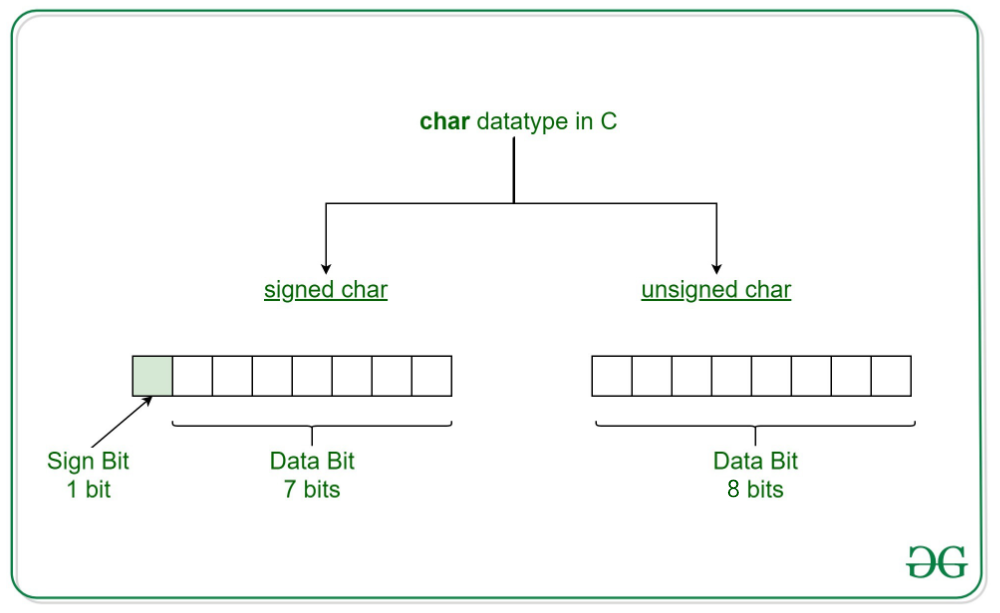unsigned char in C with Examples
Last Updated :
06 Aug, 2020
char is the most basic data type in C. It stores a single character and requires a single byte of memory in almost all compilers.
Now character datatype can be divided into 2 types:
- signed char
- unsigned char

unsigned char is a character datatype where the variable consumes all the 8 bits of the memory and there is no sign bit (which is there in signed char). So it means that the range of unsigned char data type ranges from 0 to 255.
Syntax:
unsigned char [variable_name] = [value]
Example:
unsigned char ch = 'a';
- Initializing an unsigned char: Here we try to insert a char in the unsigned char variable with the help of ASCII value. So the ASCII value 97 will be converted to a character value, i.e. ‘a’ and it will be inserted in unsigned char.
#include <stdio.h>
int main()
{
int chr = 97;
unsigned char i = chr;
printf("unsigned char: %c\n", i);
return 0;
}
|
Initializing an unsigned char with signed value: Here we try to insert a char in the unsigned char variable with the help of ASCII value. So the ASCII value -1 will be first converted to a range 0-255 by rounding. So it will be 255. Now, this value will be converted to a character value, i.e. ‘ÿ’ and it will be inserted in unsigned char.
#include <stdio.h>
int main()
{
int chr = -1;
unsigned char i = chr;
printf("unsigned char: %c\n", i);
return 0;
}
|
Like Article
Suggest improvement
Share your thoughts in the comments
Please Login to comment...